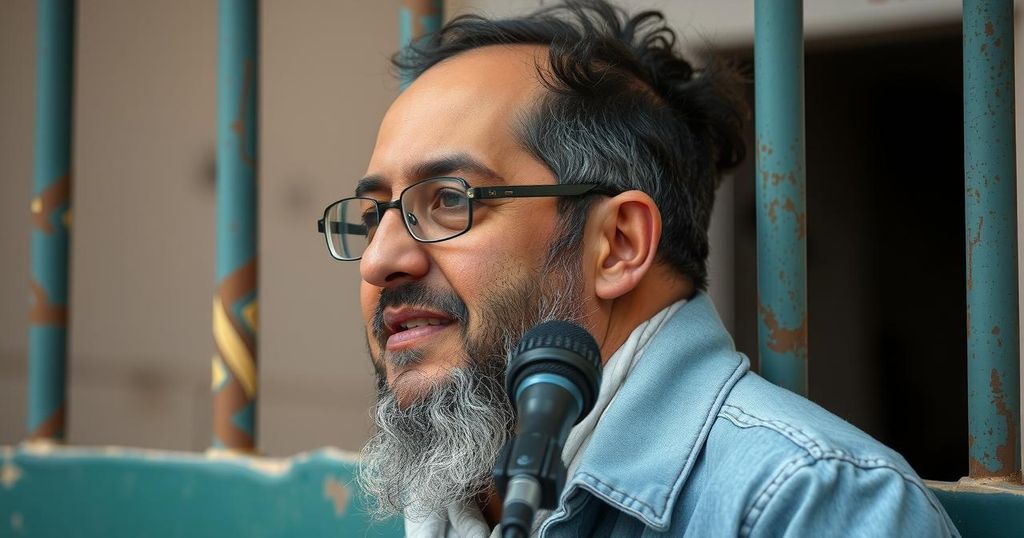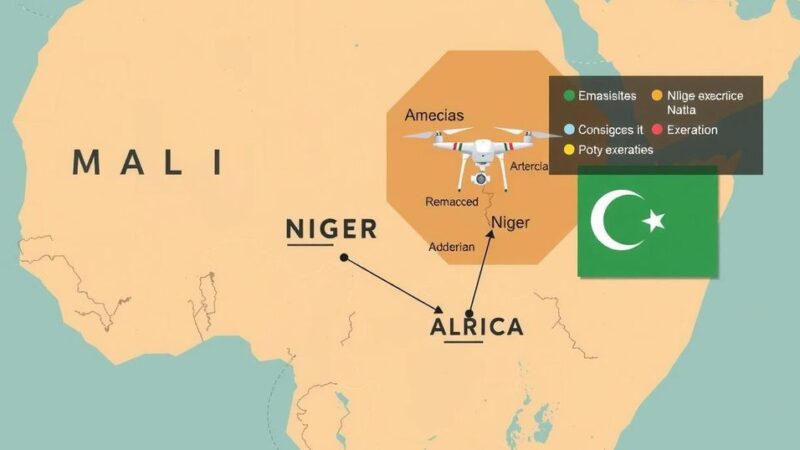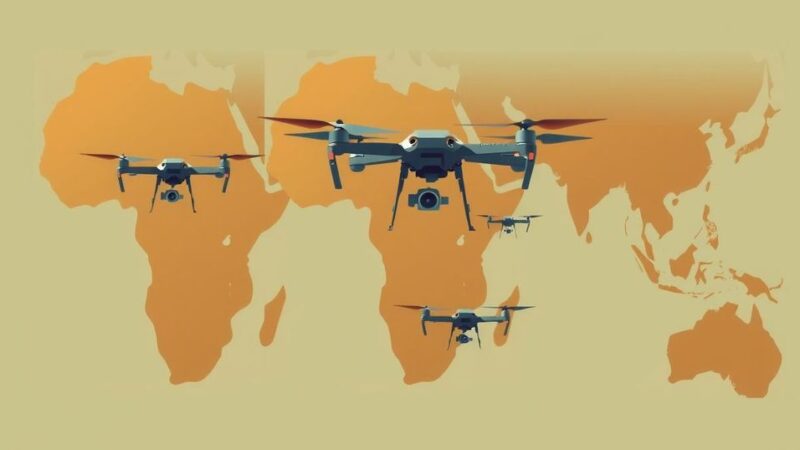Said Ait Mahdi, a Moroccan activist, was sentenced to three months in prison for leading protests against the government’s response to a deadly earthquake. His case reflects concerns over civil rights and governmental accountability amidst ongoing recovery efforts. The earthquake in September 2023 resulted in widespread destruction and significant loss of life, triggering public outrage over perceived mismanagement.
In a significant ruling on Monday, Said Ait Mahdi, a prominent Moroccan activist, was sentenced to three months in prison due to his leadership in protests that criticized the government’s response to a devastating earthquake. His attorney reported that he was fined over $1,000 and faced multiple charges, including defamation and inciting unauthorized demonstrations. The earthquake, which struck the Al Haouz region in September 2023, resulted in nearly 3,000 fatalities and widespread destruction of infrastructure.
Ait Mahdi’s case marks a worrying trend, as he is the first activist to receive such a sentence in connection with these protests. Public discontent has grown over perceived mismanagement of recovery efforts, with many individuals still residing in temporary shelters. Although Ait Mahdi expected a harsher sentence based on similar cases, his supporters regard the ruling as politically motivated retaliation against his advocacy for the earthquake victims. Three other activists were acquitted in a concurrent trial, demonstrating the controversial nature of these legal actions.
Civil liberties organizations in Morocco have publicly condemned the arrest of Ait Mahdi, labeling the charges as arbitrary and a direct response to his activism. Advocates from the Moroccan Association for Human Rights have asserted that Ait Mahdi’s sentencing serves to distract from serious shortcomings in the government’s recovery response. Furthermore, a coalition of NGOs has described these legal actions as attempts to obscure the violations against victims stemming from the flawed recovery strategy.
The earthquake exacerbated existing socio-economic disparities, particularly among Morocco’s indigenous minority groups, damaging over 60,000 homes and countless schools. As recovery efforts unfold, the Moroccan government has pledged to invest more than $11.5 billion over the next five years to assist with reconstruction and aid displaced families. Activist groups continue to raise awareness regarding the slow reconstruction processes, having held protests in both local towns and the capital, Rabat. Recently, demonstrators have gathered to support Ait Mahdi, highlighting that he is regarded as a leading voice for the earthquake’s victims.
The article discusses the sentencing of Said Ait Mahdi, a Moroccan activist, who was penalized after leading protests against the inadequate response to the September 2023 earthquake in the Al Haouz region. This earthquake had devastating consequences, claiming thousands of lives and inflicting immense damage to infrastructure, including homes and schools. Ait Mahdi’s case highlights ongoing tensions between the government and activists advocating for better recovery efforts, reflecting broader issues of civil liberties and human rights in Morocco.
The sentencing of Said Ait Mahdi represents a significant development in the ongoing struggle for civil rights and accountability in Morocco. His case underscores the challenges faced by activists in dealing with governmental responses to crises, particularly in marginalized communities. Public protests continue to advocate for greater transparency and efficient recovery efforts as the nation grapples with the aftermath of the earthquake and the broader implications of civic activism.
Original Source: www.wral.com






